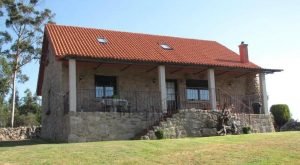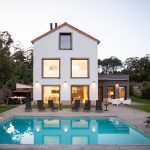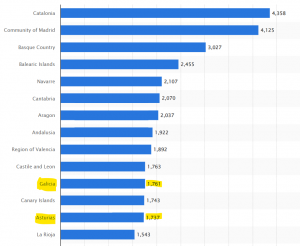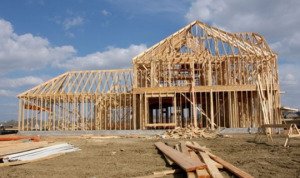Insight #2 Building your Dream Home in Spain
 Many people come to Spain in the hope of building their own home. When it comes to making this a reality, there are many careful considerations to make that are not always so accurate to calculate.
Many people come to Spain in the hope of building their own home. When it comes to making this a reality, there are many careful considerations to make that are not always so accurate to calculate.
G&G Spain Property & Relocation can inform you of everything you need to know about building your own home in Northern Spain and how the costs stack up.
THE PRICE OF LAND
Acquiring an affordable plot of land in the appropriate location is one of the most important decisions and the first step when considering a bespoke villa.
There are several classifications of land on the market for sale. You need to decide which is better for your own circumstances and budget.
Anyone can approach the local town hall and ask to look at the “Plan General de Ordenación Urbana”. This shows the different classifications of land as follows:
- Urban (“Suelo urbano”): Landmarked for construction. It may or may not have all services marked and if it doesn’t, you need to find out if you will be asked for extra payments. What is known in Spain as urban land is a building plot that is ready to build on. It has been approved and regulated. Services such as mains water, electricity, sewers and fiber optic phone connections are usually ready to connect. Here you don’t require outline planning consent. You only need to apply for full planning permission by submitting detailed plans to the council following the approval of the architect´s project at the College of Architects.
- Buildable (“Suelo urbanizable”): This is land that is not yet urban (buildable) and requires a great deal of planning and council approval. The relevant actions, such as obtaining permissions, licenses and connections. Converting it into urban land involves greater time and expenditure.
- Rustic (“Suelo rústico”): Rustic or rural land has limitations depending on the use that is going to be given to the property. You need consent from both the local authority and the regional authority. If you do get permission there will be rules about the percentage of construction on any plot; you might need to purchase a large piece of land to build a relatively small property on it. Building a property on this type of land is not always permitted, unless there already exists a ruin in which case a Rehabilitation Project must be submitted.
At the Council you will need to check that the land has a certificate known as “Certificado Urbanístico” which gives all the specifications about the development permissions. Local councils have their own rules, and these can be quite detailed, i.e. the colour you can use on the external walls, number of balconies, the height, the perimeter walls, size of pools, etc. Most important is the max. size of building (“Edificabilidad Máxima”) that can be built on each plot.
How much does it cost per m² to build a house in Spain?
According to ‘Statista’ in a January 2023 survey, the average price of quality new construction in Spain was 1,200 €-1,900 € per square meter.
Unfortunately, following the 2020 pandemic, inflation has caused the rise in the cost of building materials, fuel and other factors. According to”VIP Reformas“, a single-family house, of about 150 m² with medium-high qualities, that used to cost about 900 €-1,200 € per square meter now gives a total construction price of about 250,000 € to 300,000 €. Overall costs could vary slightly, one of the cheaper locations appears to be in Galicia, in the Northwestern area of Spain, but this will vary depending on the province and the company employed.
THE STRUCTURE
The structure is a very important phase, one that most affects the final price of building a house in Spain and depends on the system and materials used.
- Steel: The price of a steel structure will be the cheapest option.
- Reinforced Concrete: The average price of concrete will be a little higher but more commonly used.
- Wood: The price of timber depends on the type and quality. This will be probably be the highest priced material to use and you should factor in local climate variables that can affect the performance.
THE PROJECT (“El Proyecto”)
The first thing you will need to do is to hire an Architect whose fees will mostly depend on the prestige of the professional and the complexity of the project. The fees are usually between 4% and 6% of the material execution budget – where the project is defined in detail, the structure and installations are calculated and all the finishes are specified in a document known as the ‘Memoria de Calidades’, an exact copy of which is handed to the construction company to submit to tender.
G&G Spain Property & Relocation work with a number of professional Architects, many bilingual, that can be recommended to help you with your project and help you to appoint a Technical Architect or “Aparejador” who is also a quantity surveyor. They deal with the technical aspects of construction and will be required on site every week to endorse all stages of the project are being executed according to the project. The average price for a quantity surveyor in Spain is around 5,000 € to 6,000 € per project.
A safety coordinator may also be a requirement depending on the complexity of the project and the cost will depend on the duration of the construction process but it is usually around 4,000 €.
LOCATION CONSIDERATIONS: You will need to take into account certain factors depending on where the plot lies. Building a property on a sloping plot will cost more than on a flat one.
SITE STUDIES: Before building, a series of site studies must be carried out to check the possibilities and feasibility of the project for two reasons. Firstly, because the geology will be hard to ascertain correctly until you have had this survey done. Secondly, it is compulsory.
1.-Topograhical Survey: This outlines the geometry of the plot where the house is to be built. The price ranges between 350 € and 600 €.
2.-Geotechnical Survey: This shows the characteristics of the land and serves to design a suitable foundation. The average price is 750 €.
THE COST OF A BUILDER IN SPAIN
G&G Spain Property & Relocation can recommend professional companies many with a bilingual project manager who will provide all the contractors you will need, including obtaining the permissions, the right Architect for your design and construction company (builders) who will provide all the necessary tradesmen and will therefore include these costs in the project budget.
INTERIOR DESIGNERS IN SPAIN
 Hiring an interior designer is not compulsory by any means, but many people choose to do so to help them decorate the house at the end of the work. There is no fixed price, but the average price of an interior designer in Spain is between 50 € and 100 € per hour. Many project managers will have recommended designers who they will include as part of their project but G&G Spain Property & Relocation also work with independent bilingual interior designers as well as cleansing energy gurus!
Hiring an interior designer is not compulsory by any means, but many people choose to do so to help them decorate the house at the end of the work. There is no fixed price, but the average price of an interior designer in Spain is between 50 € and 100 € per hour. Many project managers will have recommended designers who they will include as part of their project but G&G Spain Property & Relocation also work with independent bilingual interior designers as well as cleansing energy gurus!
TAXES WHEN BUILDING A HOUSE IN SPAIN
Before starting the building work, you have to pay the Tax on Construction, Installations and Works (ICIO) and fees to the local council where the house is to be built. This is a percentage of the construction budget, which varies in each local council in Spain, but is usually between 3% and 5%.
Once the work has been completed, the following costs will be incurred:
- “Licencia de Primera Ocupación“ or First Occupancy License Feefrom the town hall, which is between 0.5% and 1% of the budget.
- “Escritura de Obra Nueva” or Title Deed of New Construction at the notary and registering it with the Land Registry. Notary and registry fees are around 0.5% of the value of the property.
- “Impuesto de Actos Jurídicos Documentados“ or Stamp Duty for the declaration of new construction. 1.5% of the cost value of the new construction.
- “Cédula de Habitabilidad” to contract the water and electricity supplies. They usually cost 500 €-700 € each.
INSURANCE
For the building work, insurance is taken out by the quantity surveyor, the architect and the construction company. The owner has to pay guarantees for “Gestión de Residuos” and “Ocupación de Aceras“ (Waste Management and Occupation of Pavements), which if no mishaps occur, must be refunded at the end of the construction process. This is usually around 1% of the budget, but also varies depending on the municipality.
A summary of the preliminary steps before buying your plot of land:
A visit to the Land Registry, will allow you to request a “nota simple” to know if the land has any previous charges, debts or encumbrances.
The next step will be to contact the “Catastro” to provide a descriptive and graphic certification, so that it will be possible to check that boundaries, size and ownership data coincide. Finally, it is necessary to go to the corresponding town hall to consult the planning regulations.
FINANCING
In general, banks do not grant mortgages for the purchase of land, so the best thing to do would be to apply for a loan or remortgage your current home. However, in general in Spain it is possible to apply for a self-build mortgage which, as its name suggests, will serve to finance the construction of the home.
Certain Issues to be taken into account
Thousands of families in Spain have realized during the Coronavirus crisis that their current housing does not meet their needs. During the extended period of confinement, new housing needs emerged and families, on the whole, longed for more space and above all, an outdoor space where they could cope a little better with the pandemic. 
Emphasis more than ever is now on the importance of the outdoor spaces, terraces and swimming pools (even in the North). Current buyers have set out a trend with very specific requirements that lead them to consider the possibility of building bespoke detached villas.
So, is it wise to build your own home in Spain?
It is important to know, that the time needed to complete a new build project in Spain is usually about two years. In order to avoid it being prolonged and costs skyrocketing, the experts consider it essential to carry out “a detailed planning of the budget and timescale”, as well as a studied coordination of the professionals (architect, construction team etc.) involved in each of the stages. The time factor is to be calculated carefully to avoid currency volatility during the length of time that a property takes to build. Beyond that, to consider the design, planning and construction of a new home is an option that a surprising number of British and other international buyers are now doing in Spain.
Despite the fact that the purchase of a plot of land to subsequently build a home is an interesting option, experts in the field call for extreme caution. While buying land and building your own home is something fairly common in other European countries, Spain hasn’t quite reached the same level as the UK, for example, when it comes to self-builds and expats may find the process in Spain rather different. Experts emphasize that opting for this route can be a complicated process and is not usually quick, which is why it is crucial to seek professional advice.
G&G Spain Property & Relocation can an offer you a full spectrum of services, from finding you the right plot to ensure you find the right architect or project manager that will work correctly on the project with you and care for your needs, design and budget.
Buying a Ruin or a Property to restore or Modernize
G&G Spain Property & Relocation can also offer you an alternative option in order to acquire your dream home.
This is to help you find a property in need of total and/or partial restoration or modernisation, acting as your Client Representative to ensure you buy safely, in the location of your choice and provide you with the professionals to help you update an existing property, which will help you differentiate the costs or restoration, compared to building new.
However, to restore or even modernize properties you still need to get permission and licenses from the local council.
Types of License applications:
Major Permission: (“Licencia de Obra Mayor“)
Required when restoring a ruin or a house that needs a new roof, knocking down outside walls, opening windows and door spaces, etc.
Minor Permission: (“Licencia de Obra Menor”)
This license is for smaller cosmetic works to be carried out, such as fitting new kitchens and bathrooms
Many cases will still require an Architect, Project manager or Interior designer. These experts will be able to advise on the best course of action, which license to apply for and also help submitting applications for any grants that you may be eligible for.
Here are some example properties on G&G Spain Property & Relocation Service’s website:
We can give you advice on each area with regard to climate, distance to amenities, services and connections as well as what makes each town, village or area special.
https://galiciagreenspainproperty.com/property_info/magnificent-senorial-grand-house-in-tomino/
https://galiciagreenspainproperty.com/property_info/new-passive-house-build-along-the-rias-altas/
We can offer Client Representation, not only on properties on our website but also on any property anywhere in Northern Spain, whether it be advertised by a private seller/ agent on a portal such as Idealista or Fotocasa, ensuring that your best interests are safeguarded and guiding you through all the purchase and/or restoration processes and post purchase services.
The G&G Team ready to help you find your dream home whether it be a piece of land for a new build of your own design, a restored traditional stone home, a ruin or house in need of restoration or modernisation? We can Help!






